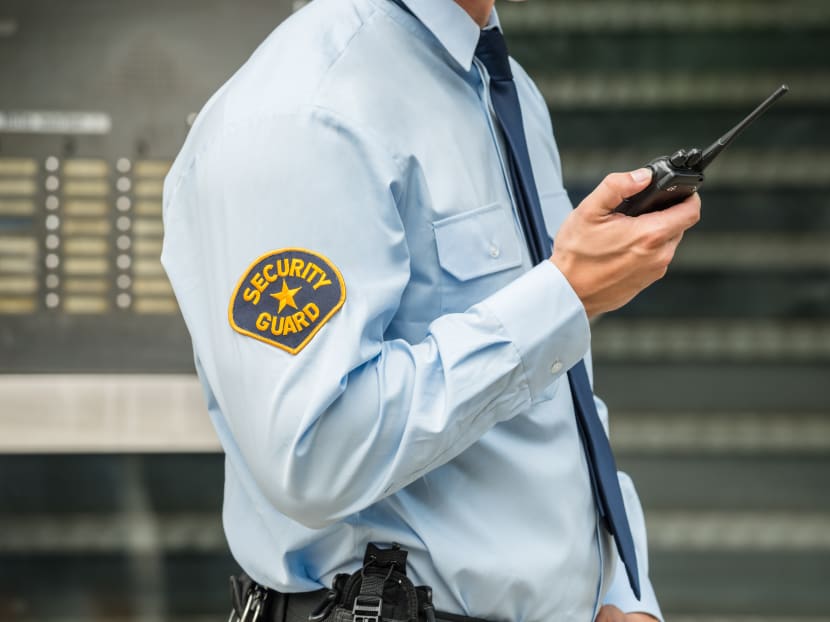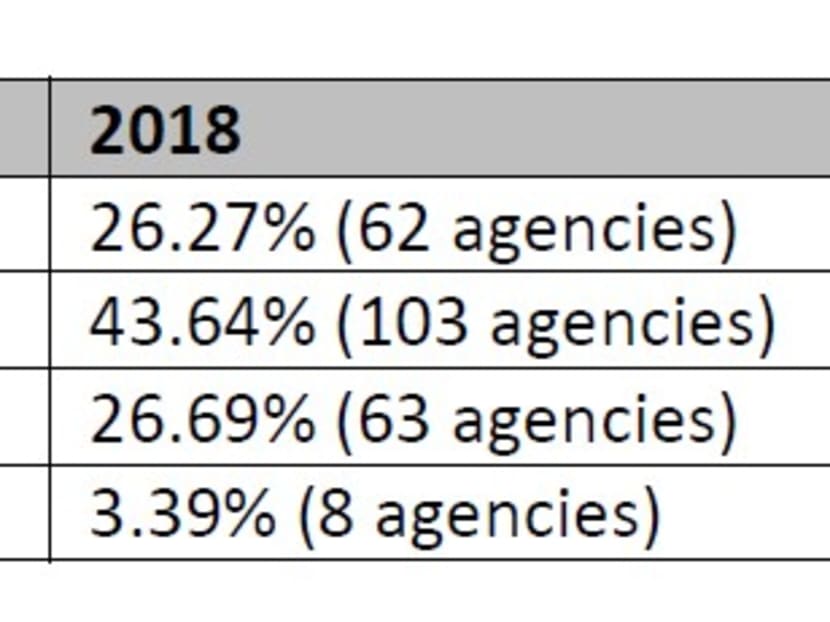Security Association Singapore criticises Govt's grading system for agencies, says it has ‘shifting goalposts’
SINGAPORE — The Security Association Singapore (SAS) took issue with the Government’s latest assessment of security agencies here, saying that "shifting goalposts" have given the wrong impression that the firms have not improved.

With half of all agencies in Singapore changing grades every year as a result of the grading exercise, it is not helpful for buyers or longer-term contracting purposes, the Security Association Singapore said, as it pushed for an urgent review.
SINGAPORE — The Security Association Singapore (SAS) took issue with the Government’s latest assessment of security agencies here, saying that "shifting goalposts" have given the wrong impression that the firms have not improved.
In a strongly worded statement, Mr Ikhsan Suri, the executive director of the association, said on Tuesday (Dec 17) that there is an urgent need to change the criteria and methodology of the grading system because it has arbitrary cut-off points based on a bell curve.
SAS, which represents security agencies here, was responding to results from the Security Agency Grading Exercise (Sage) released by the police on Monday.
In response to SAS' statement, the Ministry of Home Affairs (MHA) said on Tuesday evening that the assessment criteria, including weightage, is transparent and known to all security agencies.
Changes to the criteria of the grading system are made in close consultation with agencies and with advance notice given, it added.
However, it said that a review is underway as Singapore looks to transform the security industry.
WHY THE GRADING EXERCISE
The annual grading exercise aims to provide an independent assessment of security agencies’ performance to help service buyers differentiate the service quality of agencies.
The grading is mandatory and helps agencies to improve their operational capabilities.
MHA said in response to queries from TODAY that since it was introduced in 2009, Sage has helped to raise the professionalism and standards of the industry.
“The majority of the security agencies have maintained or improved their Sage grades from year to year.
“The few that perform poorly in consecutive years can have their licence revoked,” it said.
HOW THE GRADING WORKS
Security agencies are assessed based on five categories, with each category attributed a different level of weightage towards the overall aggregate percentage score.
The categories are:
-
processes (35 per cent weightage)
-
people (22 per cent)
-
systems and technology (20 per cent)
-
employment practices (15 per cent)
-
counter-terrorism (8 per cent)
Agencies are then awarded grades based on their aggregate percentage score, with each grade determined by a cut-off score.
For instance, to score an A grade, an agency must score at least 96 per cent.
A total of 235 agencies took part in the grading exercise this year and the results are as follows:
-
63 agencies received an A grade
-
105 agencies received a B grade
-
64 received a C grade
-
Three received a D grade
WHAT SAS IS SAYING
Mr Ikhsan of SAS said that the proportion of agencies obtaining the A, B and C grades this year is similar to that of last year and this may give the false impression that the agencies have not improved their performance.
“Going by Sage’s own aggregate scores, security agencies have, in fact, improved significantly from last year.”

He said that the reason why the percentages are similar is because agencies are scored on various criteria, and their aggregate results are then plotted on a bell curve.
Cut-off points are then determined to ensure that the percentage and number of agencies that obtain the A, B and C grades respectively remain similar year on year, he explained.
For instance, in 2018, 62 agencies obtained an aggregate score of 95 per cent and above, and were awarded the A grade.
Then in 2019, 82 agencies obtained aggregate scores of 95 per cent or above.
Although the number of agencies receiving aggregate scores of 95 per cent and above had gone up by one-third, only 63 agencies received an A grade this year because the cut-off point was pushed upwards from 95 per cent to 96 per cent this year.
The cut-off points were also shifted upwards for the B and C grades, Mr Ikhsan said.
“Therefore, the number of agencies obtaining the A, B and C grades remained largely the same from 2018 to 2019 not because of stagnating standards, but because of shifting goalposts.”
HOW SYSTEM CAN BE BETTER
The association also took issue with the criteria used to assess security agencies here, saying that it was “very wide-ranging” and not reflective of the agencies’ capabilities.
In particular, the inclusion of employment practices, which assesses a security agency on its compliance with employment laws and whether it pays employees’ salaries on time, “dilutes” the exercise’s focus of being an indicator of how proficient an agency’s security operations are, Mr Ikhsan said.
With half of all agencies in Singapore changing grades every year as a result of Sage, it is not helpful for buyers or longer-term contracting, Mr Ikshan added, even though he acknowledged that Sage has been “an important and powerful tool” to help transform and improve the standards of the industry.
When asked by TODAY why the association was taking issue with the grading system this year, Mr Ikshan said that SAS’ views have been consistent regarding the use of the bell curve in Sage and that it has represented its views to the relevant parties on tripartite platforms including the Government and unions.
“The (grading exercise) has significant commercial implications for security agencies because security buyers look to it to differentiate the market.
“In this regard, it is essential that we get the assessment and grading methodology correct,” Mr Ikshan said.
He also said that regulators and the authorities have been receptive to the industry’s views and that all parties are relooking Sage.
WHAT MHA IS SAYING
In its response to SAS’ criticism, MHA said that Sage is a “holistic assessment” of security agencies’ capabilities, comprising a review of their documentation, site visits, and interviews with their security officers.
It is also a means to raise the standards of the industry, by setting out the expectations of security agencies, MHA said.
“In light of the transformation of the security industry, the Ministry of Home Affairs and the Singapore Police Force have already started work with the security associations and other government partners to review Sage so that it better supports industry needs as well as achieve the vision charted out under the Security Industry Transformation Map.”











